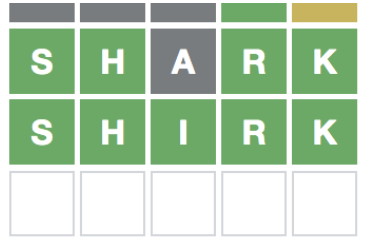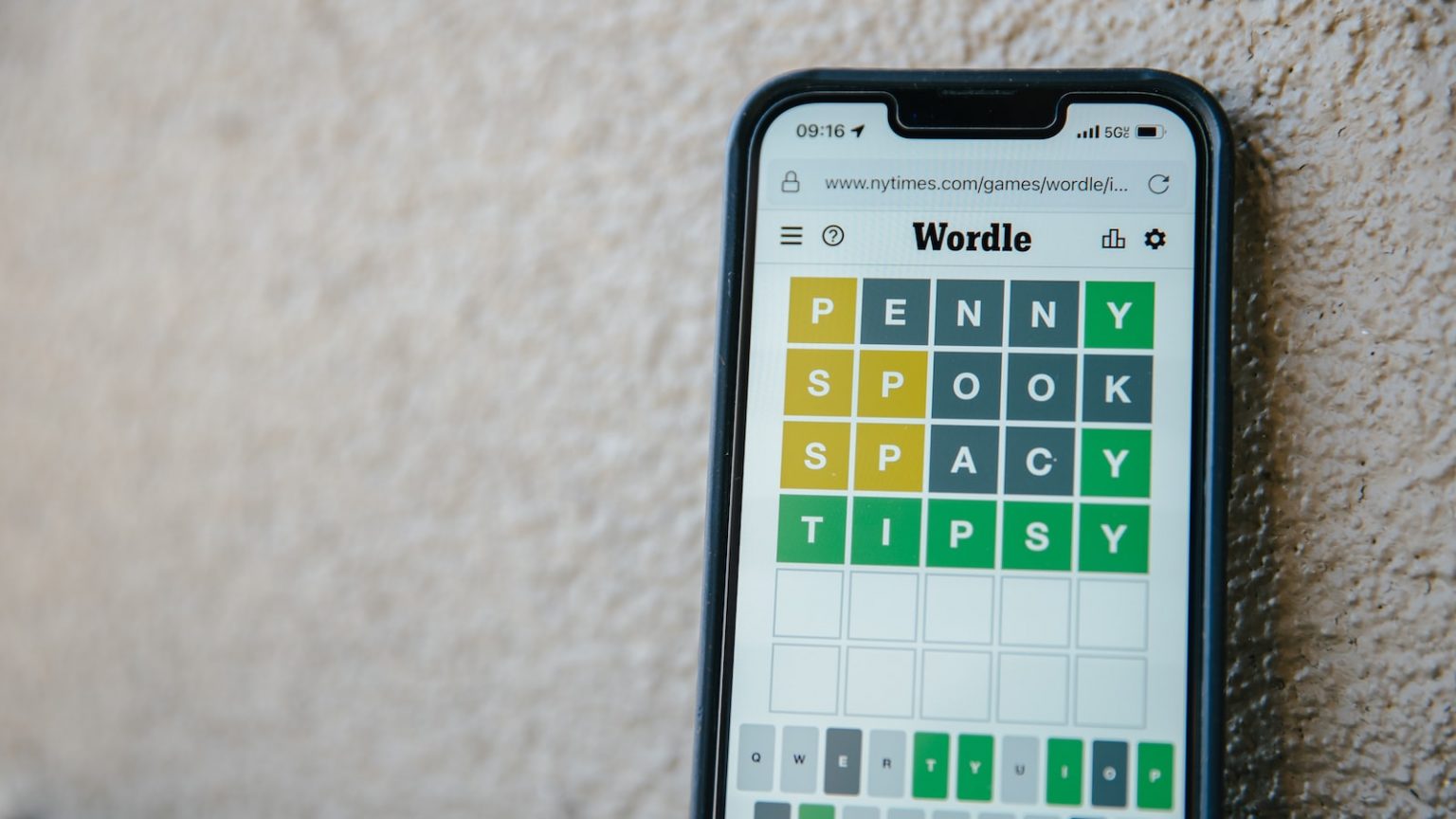Starting the day with an activity that creates an atmosphere for learning is an easy way of
transitioning from ‘home’ to ‘school’. Wordle is great for this!
Word games are fun, no-pressure ways to improve vocabulary and language pattern recognition.
Wordle improves spelling, is great for solidifying the difference between vowels and
consonants, and reinforces usage of vowel/adjective grammar rules.
I before E, except after C
Q must be followed by U
Using Wordle to Create Lessons
It’s really easy to make an English lesson from Wordle. Here are a few examples from this week’s attempts:
Wordle word: INERT

They understood the word inertia from science lessons, so, after looking at the different uses of the word ‘inert’, we used the word as a prompt to recap Newton’s Laws of Motion.

Crash Course videos are a great tool to explain science concepts in a simplified way.
Because the laws of motion is a subject they were familiar with and have studied previously, we watched a more complex video by The Organic Chemistry Tutor, a YouTuber whose diagram style of explanation mirrors how I ‘teach’ and so is familiar to our homeschoolers.
The whole lesson took about an hour, including solving the Wordle puzzle.
Wordle Word: SHIRK

We googled the meaning…

…and used the definition as a conversation starter. Some of the most productive lessons are conversations.
We discussed the word deities, what it means to ‘make a partner of someone’ (with examples of the Middle Eastern ‘Evil Eye’ and the concept of ‘lucky’ socks/pants etc), the etymology of words and how translations can change the meaning.
The concept of ‘evil eye’ grabbed their attention so we extended the lesson in that direction by reading aloud a BBC article about the origins of evil eye amulets.
We recapped their knowledge of Mesopotamia, referring to Britannica Kids (one of our ongoing home-ed subscriptions), and found Tell Brak, where the oldest amulet has been found, on a map.
We read through the information on the excavations that turned up evil eye amulets in Tell Brak using Learning sites Inc (the website design is basic but the information is sound) and bookmarked it to come back and create a piece of history coursework from at some point.
From taking topic inspiration from the answer (or guesses), to using the new words that crop up through the week as a vocabulary comprehension or spelling list, it’s easy to generate lesson inspiration from Wordle and other word games – either as on the fly lessons like the above examples, or by collating any vocabulary or new information into a quiz that can be used as revision. Discovery Education – a fab resource for home educators on so many levels – has a simple to use puzzle maker.
If your homeschooler enjoys being creative and making their own games, encourage them to create their own revision materials using an easy to use site like Puzzel. Creating their own revision library helps home learners by encouraging them to review lessons after completion, cementing their knowledge with the repetition, and makes it easy for them to actually revise when they need to using notes that make sense because they created them!


